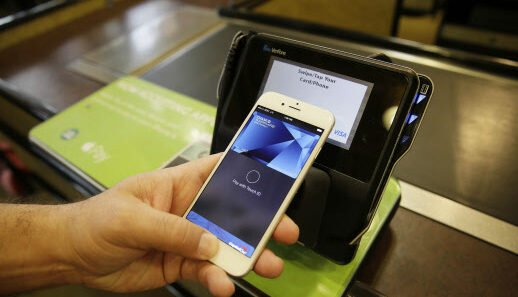New Apple Pay mobile payment system is shown in Cupertino, USA. (AP Photo/Eric Risberg, File) The rise in mobile and digital banking is likely to surpass the banking sector’s revenue predictions on a continental scale which were expected to increase from $86 billion in 2017 to $129 billion in 2022 according to a study conducted by McKinsey and published in February 2018.
Africa is the second-largest banking market in the world in terms of growth and profitability.
Although a large proportion of the continent’s population remains unbanked, the explosion of the digital banking phenomenon due to emergence and ubiquity of mobile technology has, and continues to make immense contributions in bridging this gap.
READ MORE Zambia: Zanaco to enter micro-finance as part of digital push, says CEO
The report also found that the number of Africans with bank accounts had increased from 170 million in 2012 to nearly 300 million in 2017. In the next five years, this figure is expected to reach 450 million.
The African consumer has been at the heart of Africa’s mobile banking revolution. In many ways, it is the discerning African consumer who has turned Africa into a continent blazing the global trail in mobile banking and offering a benchmark for developed markets on where banking is headed. Africa’s Fintech Revolution: The Genesis of Mobile Banking
When Cellulant pivoted from mobile content services to venture into digital banking and payments in 2007, it was to solve a customer pain point: funding their mobile wallets from their bank accounts in order to make payments and transfer money in a cheaper, faster and more convenient way. This was about the same time Safaricom’s mobile money service Mpesa had just been launched in Kenya.
READ MORE Kenya: M-Pesa and mobile data boost Safaricom’s 2019 growth
Cellulant became the first company to connect Mpesa to a bank. Little did we know that this simple solution we had built would revolutionise banking across Africa.
As the fintech revolution began, the very processes and legacies within the banking sector that had been, and continue to be, its source of strength, stability and dependability prevented the sector from being less risk-averse even when consumer needs were changing as the world moved to the digital age.
Since that first connection of a bank to a telco in 2007, most banking institutions saw the writing on the wall, a radical shift needed to happen in the banking business […]
